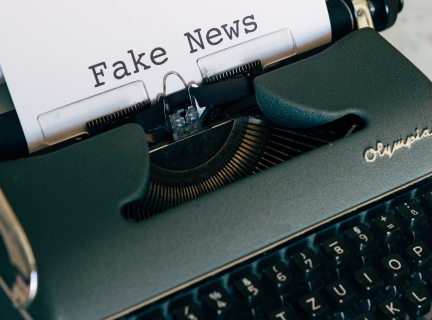Disinformation and Fake News
There's nothing new about the practice of spreading falsehoods in order to influence public opinion, make money, or cause dissension. However, with the advent of new technologies, it's now easier than ever before to circulate misinformation far and wide over social media and other online forums. This guide will help you find credible resources to learn about fake news and what you can do to avoid being fooled by misleading or downright false claims.
Advocacy Organizations
Useful Websites
Fact Checking Sites
The following sites attempt to combat fake news, scams, and hoaxes by looking into specific claims that have been reported - in newspapers, on the TV, over social media, or by any other means - to determine whether or not the stated "fact" is actually true.
How to Spot Fake News
It's always a good idea to think critically about the information that comes our way, whether it be something that we read or see in the news or something we're told by a friend or colleague. Thinking critically doesn't have to be a massive undertaking, though - there are simple things that we can all do to detect potential fakery and avoid spreading it further. Use the resources below to learn tips and tricks for developing the right mindset to spot fake news.
Canadian Independent Media
Independent media, crucial in combating fake news, upholds journalistic integrity by providing credible information untainted by vested interests, promoting transparency and trust in news dissemination.
Here are resources to help you find independent media organizations.


